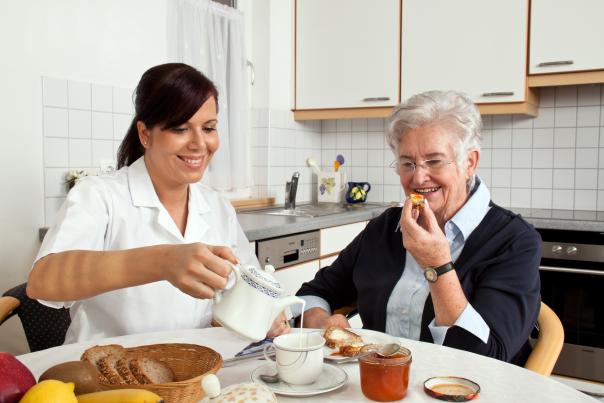
The amount spent on social care services for older people has fallen nationally by £1.1 billion since 2010/11 and £1.4 billion since 2005/6, which takes into account additional funding from the NHS.
The figures show that between 2010/11 and 2013/14, older people receiving home care has fallen by 31.7% and the spend on home care has dropped by 19.4%. This means a third of older people, who have difficulty carrying out essential daily activities do not receive any formal help. Over two thirds of those who find it hard to eat on their own do not receive any help.
Caroline Abrahams, charity director at Age UK said: “This devastating scorecard speaks for itself and it lays bare the fact that our State funded social care system is in calamitous, quite rapid decline.
“The more preventive services like meals on wheels and day care are being especially hard hit, leaving the system increasingly the preserve of older people in the most acute need, storing up big problems for the future.
“Hundreds of thousands of older people who need social care are being left high and dry. The lucky ones have sufficient funds to buy in some support, or can rely on the goodwill of family, neighbours and friends. But there are many who are being left to struggle on entirely alone.

Caroline (below) added: “Today, many hospitals are finding it hard to discharge older people and commentators are asking why this challenge seems to be growing, year on year. A big part of the explanation is revealed by this scorecard: the marked decline in central Government funding for social care and the resultant reduction in support for older people to live independently at home – this at the same time as their numbers are rising.
“Until recently the impact of the decline in social care has been relatively hidden, but social care is a crucial pressure valve for the NHS and the evidence of what happens when it is too weak to fulfil that function is clear for us all to see.
 “The Better Care Fund is very welcome, in so far as it is encouraging local health and care services to work together with other community services to improve their support to older people living with frailty. However the £3.8 billion is not new money and the projected savings from reductions in emergency admissions are very optimistic.
“The Better Care Fund is very welcome, in so far as it is encouraging local health and care services to work together with other community services to improve their support to older people living with frailty. However the £3.8 billion is not new money and the projected savings from reductions in emergency admissions are very optimistic.
“So policymakers owe it to the public, older people especially, to confront the crisis in social care and its consequences. Above all, this scorecard makes clear that for any policymaker to acknowledge the need for investment in the NHS while omitting to mention social care is not good enough and will ultimately not solve the problems facing the NHS either.”